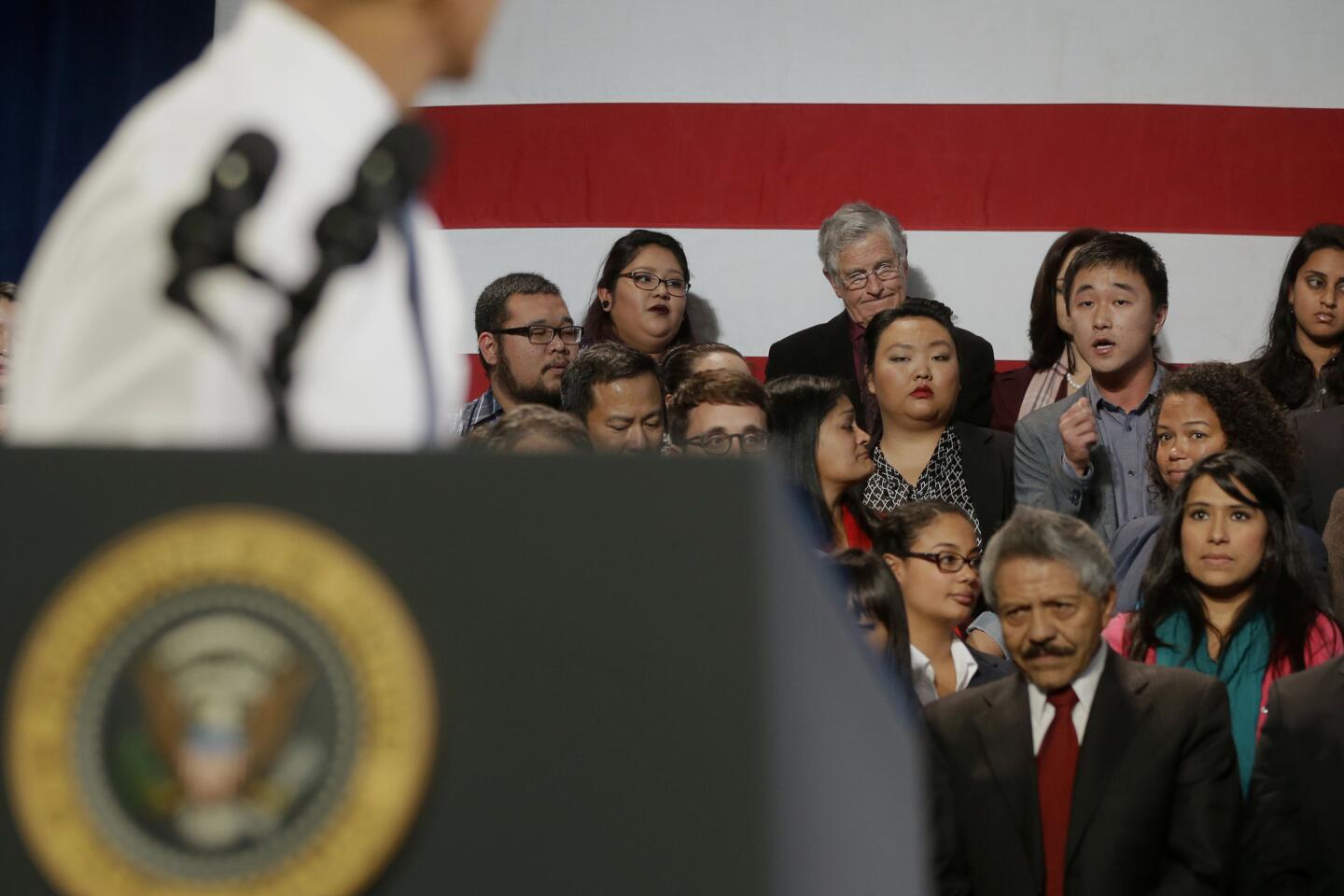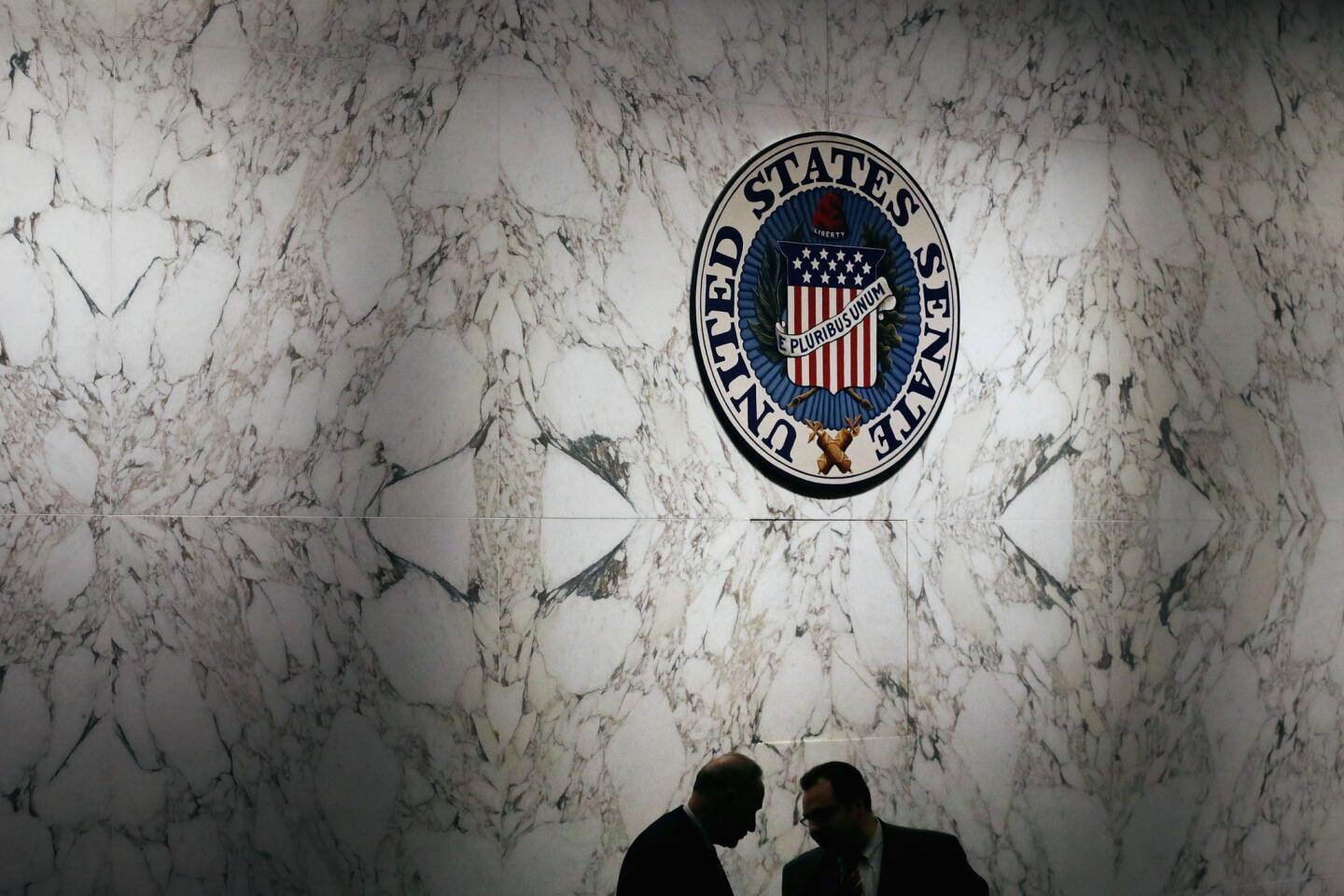Immigrant healthcare bills stump House group
- Share via
WASHINGTON -- Differences over whether immigrants should be deported for failing to have health insurance or pay their healthcare bills have stalled a bipartisan group of House lawmakers, who blew past a self-imposed Thursday deadline as they pressed forward on a sweeping immigration overhaul.
Negotiators emerged upbeat from a closed-door meeting in the Capitol and said they remained on track to produce a bill by June. That, in itself, was significant, after the group of eight was on the verge of breakup.
“We were all positive that we can move forward,” said Rep. Raul Labrador of Idaho, a top Republican leading the bipartisan effort.
House Republican leaders are increasingly concerned that momentum in the Senate, where a bipartisan immigration bill cleared a committee this week, will leave them on defense without their own proposal.
Trying to avoid that outcome, House Speaker John A. Boehner (R-Ohio) publicly drew a line Thursday by saying his chamber would not accept the Senate legislation.
“The House remains committed to fixing our broken immigration system, but we will not simply take up and accept the bill that is emerging in the Senate if it passes,” Boehner and his GOP leadership team said in a joint statement as the private meeting was ending. “The House will work its will and produce its own legislation.”
House Democrats have their own internal divisions as they determine whether it is best to put their weight behind the Senate bill, which hews more to their political priorities, or push the House group to finish its bipartisan proposal that is certain to be more conservative than the Senate effort.
How exactly the House will proceed remained an open question as lawmakers left town for the weeklong Memorial Day recess without firm agreement on the healthcare issue.
Federal law already guarantees emergency care for anyone who shows up at an emergency room, and under the emerging House plan, that would not change.
The House group has already agreed that as an estimated 11 million immigrants lacking proper papers begin the decade-long transition to legal status, they would not have access to key healthcare benefits that are available to Americans.
Chief among those would be exclusion from receiving the tax subsidies that will be available to help Americans cover the costs of mandatory insurance coverage required by the new healthcare law. That is also the case in the Senate legislation.
The House and Senate will, however, allow immigrants who are gaining legal status to use their own money to buy health coverage on the new healthcare exchanges. The health exchanges will be available next year to sell policies to Americans who are not offered healthcare coverage through their employers.
Republicans in the House group have tried to mandate that immigrants purchase health coverage or risk deportation – a provision Democrats argue is too harsh.
Many immigrants would be unable to afford privately purchased coverage, as is the case now for many working Americans for whom private policies are too expensive.
Immigrant advocates argue that the threat of deportation may prevent immigrants from seeking basic healthcare, including vaccinations or treatment for communicable diseases.
The House group agreed to keep working on the issue, perhaps only to require that immigrants make a good faith effort to pay their routine healthcare bills, and perhaps excluding costs from emergency room visits.
“Constitutionally, you can’t deny people emergency care, so you just have to comply with the Constitution,” Labrador said.
“The key is -- skip out on their bills,” he explained. “They can do like any other American that has to make payments on their bills. There just has to be personal responsibility.”
The details still need to be worked out. But for many lawmakers in the group, staying together to keep working on the bill was itself a battle won.
“I’m very pleased,” said Rep. Luis Gutierrez (R-Ill.) “We’re going to continue.”
Twitter: @LisaMascaroinDC
More to Read
Sign up for Essential California
The most important California stories and recommendations in your inbox every morning.
You may occasionally receive promotional content from the Los Angeles Times.
































